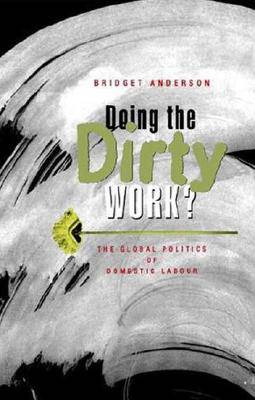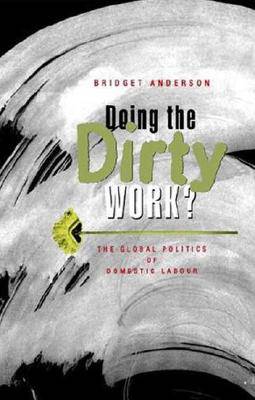
Bedankt voor het vertrouwen het afgelopen jaar! Om jou te bedanken bieden we GRATIS verzending (in België) aan op alles gedurende de hele maand januari.
- Afhalen na 1 uur in een winkel met voorraad
- In januari gratis thuislevering in België
- Ruim aanbod met 7 miljoen producten
Bedankt voor het vertrouwen het afgelopen jaar! Om jou te bedanken bieden we GRATIS verzending (in België) aan op alles gedurende de hele maand januari.
- Afhalen na 1 uur in een winkel met voorraad
- In januari gratis thuislevering in België
- Ruim aanbod met 7 miljoen producten
Zoeken
€ 69,45
+ 138 punten
Omschrijving
There has been a tendency amongst feminists to see domestic work as the great leveller, a common burden imposed on all women equally by patriarchy. This unique study of migrant domestic workers in the North uncovers some uncomfortable facts about the race and class aspects of domestic oppression. Based on original research, it looks at the racialisation of paid domestic labour in the North - a phenomenon which challenges feminsim and political theory at a fundamental level.
The book opens with an exploration of the public/private divide and an overview of the debates on women and power. The author goes on to provide a map of employment patterns of migrant women in domestic work in the North; she describes the work they perform, their living and working conditions and their employment relations. A chapter on the US explores the connections between slavery and contemporary domestic service while a section on commodification examines the extent to which migrant domestic workers are not selling their labour but their whole personhood. The book also looks at the role of the Other in managing dirt, death and pollution and the effects of the feminisation of the labour market - as middle class white women have greater presence in the public sphere, they are more likely to push responsibility for domestic work onto other women. In its depiction of the treatment of women from the South by women in the North, the book asks some difficult questions about the common bond of womanhood. Packed with information on the numbers of migrant women working as domestics, the racism, immigration or employment legislation that constrains their lives, and testimonies from the workers themselves, this is the most comprehensive study of migrant domestic workers available.Specificaties
Betrokkenen
- Auteur(s):
- Uitgeverij:
Inhoud
- Aantal bladzijden:
- 224
- Taal:
- Engels
Eigenschappen
- Productcode (EAN):
- 9781856497619
- Verschijningsdatum:
- 1/02/2000
- Uitvoering:
- Paperback
- Formaat:
- Trade paperback (VS)
- Afmetingen:
- 138 mm x 220 mm
- Gewicht:
- 299 g

Alleen bij Standaard Boekhandel
+ 138 punten op je klantenkaart van Standaard Boekhandel
Beoordelingen
We publiceren alleen reviews die voldoen aan de voorwaarden voor reviews. Bekijk onze voorwaarden voor reviews.









